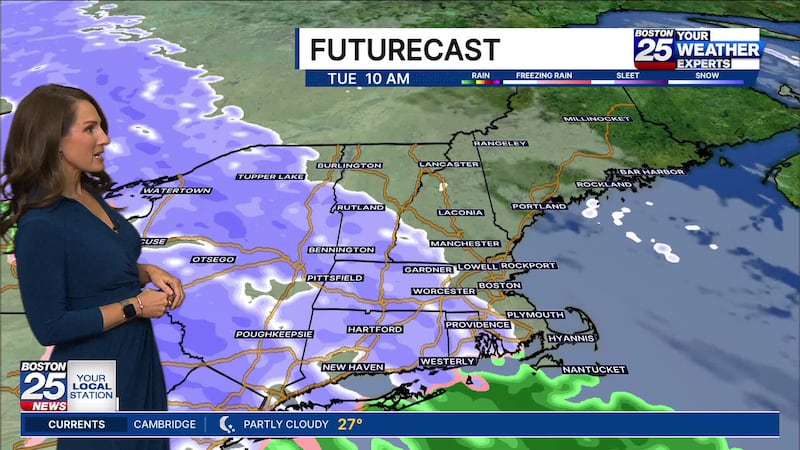BOSTON — The Massachusetts Department of Public Health has confirmed the state’s first pediatric flu-related death this season.
DPH officials say the child was a Worcester County teenager who tested positive for influenza B. No additional information on the victim was released.
Department of Public Health announces season’s first confirmed flu-related pediatric death https://t.co/ZdMdMAnOCn pic.twitter.com/5DjpKKq29z
— Mass. Public Health (@MassDPH) January 23, 2020
Officials say as of Jan. 11, the Centers for Disease Control and Prevention had reported a total of 39 pediatric flu-related deaths nationwide this season.
Last flu season, there were four confirmed pediatric flu-related deaths in Massachusetts.
Health officials are urging those who have not yet gotten their flu shot, to go get vaccinated. Doctors say it’s not too late.
“Usually we see Type A earlier in the season and Type B later in the season. This year, it’s been the other way around. We are seeing mostly Type B and that has been a strain mostly in Massachusetts and throughout the country,” said Dr. Larry Madoff, infectious disease specialist at the Massachusetts Department of Public Health.
Already this season, Massachusetts has seen almost 3,000 residents hospitalized and almost 20,000 residents visit emergency rooms.
“Influenza B tends to affect young children more than adults and tends to be less serious, but clearly we do see serious complications with both Type A and Type B. They can both be deadly and they are both contained in the vaccine so if you get the vaccine it’ll protect you in either type,” Madoff said.
Misty Adderley Rolle of Worcester says she is glad her daughter got her flu shot.
“She didn’t know what was coming. The older one remembered from last time, but she got over it pretty quickly. It was over pretty quickly,” Adderley Rolle said.
The most common symptoms of flu are fever, cough, and sore throat. Symptoms can also include body aches, headache, chills, runny nose, and feeling very tired. Some people, especially young children, may also have diarrhea and vomiting. Symptoms last from a few days to up to a week or more.
To stop flu from spreading, DPH recommends that people:
- Contact their healthcare provider if they think they have the flu, especially if they have health concerns that make them more likely to develop severe illness when sick with the flu. The provider may prescribe antiviral medications, which work best when started early in the illness. If symptoms do not improve or worsen rapidly, they should seek medical attention immediately.
- Get the flu vaccine as soon as possible. Vaccine is still available, and there is likely to be flu activity for many more weeks.
- Stay home when they are sick with fever and cough or a sore throat, if possible. People should stay at home until at least 24 hours after their fever is gone, without the use of fever-reducing medications.
- Wash their hands thoroughly and regularly, or use hand sanitizer.
- Cover their coughs and sneezes.
© 2020 Cox Media Group





